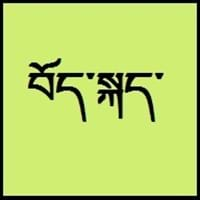Countries
European Union, Ireland
China, Nepal
National Language
Ireland
Nepal, Tibet
Second Language
Ireland
Not spoken in any of the countries
Speaking Continents
Europe
Asia
Minority Language
United Kingdom
China, India, Nepal
Regulated By
Foras na Gaeilge
Committee for the Standardisation of the Tibetan Language
Interesting Facts
- In Irish language, there are no exact words for "yes" or "no".
- There are different set of numbers for counting humans and another set for counting non-humans in Irish Language.
- Tibetan dialects vary alot, so it's difficult for tibetans to understand each other if they are not from same area.
- Tibetan is tonal with six tones in all: short low, long low, high falling, low falling, short high, long high.
Similar To
Not Available
Not Available
Derived From
Not Available
Not Available
Alphabets in
Irish-Alphabets.jpg#200
Tibetan-Alphabets.jpg#200
Scripts
Latin
Tibetan alphabet, Tibetan Braille
Writing Direction
Left-To-Right, Horizontal
Left-To-Right, Horizontal
Hello
Dia dhuit
བཀྲ་ཤིས་བདེ་ལེགས། (tashi delek)
Thank You
Go raibh maith agat
ཐུགས་རྗེ་ཆེ་། (tujay-chay)
How Are You?
Conas atá tú ?
ཁྱེད་རང་སྐུ་གཇུགས་བདེ་པོ་ཡིན་པས།
(kayrang kusu debo yimbay?)
Good Night
Oíche mhaith
གཟིམ་ལཇག་གནང་དགོས་། (sim-jah nahng-go)
Good Evening
Tráthnóna maith duit
དགོང་དྲོ་བདེ་ལེགས།
Good Afternoon
Tráthnóna maith duit
ཉིན་གུང་བདེ་ལེགས།
Good Morning
Dia dhuit ar maidin
སྔ་དྲོ་བདེ་ལེགས། (nga-to delek)
Please
le do thoil
thu-je zig / ku-chee.
Sorry
Tá brón orm
ཀོང་དགས་། (gawn-da)
Bye
Slán
ག་ལེར་ཕེབས་། (kha-leh phe)
I Love You
Is breá liom thú
ང་ཁྱེད་རང་ལ་དགའ་པོ་ཡོད་ (nga kayrâng-la gawpo yö)
Excuse Me
Gabh mo leithscéal
དགོངས་དག བཟོད་དུ་གསོལ། ཐུགས་རྗེ་གཟིགས།
Dialect 1
Connacht Irish
Central Tibetan
Where They Speak
Connacht
China, India, Nepal
How Many People Speak
Not Available
Dialect 2
Munster Irish
Khams Tibetan
Where They Speak
Munster
Bhutan, China
How Many People Speak
Not Available
Dialect 3
Ulster Irish
Amdo Tibetan
Where They Speak
Ulster
China
How Many People Speak
Not Available
Speaking Population
Not Available
Not Available
Second Language Speakers
Not Available
Native Name
Gaeilge (na hÉireann) / An Ghaeilge
བོད་སྐད་ (pö-gay)
Alternative Names
Erse, Gaeilge, Gaelic Irish
Bhotia, Dbus, Dbusgtsang, Phoke, Tibetan, U, Wei, Weizang, Zang
French Name
irlandais moyen
tibétain
German Name
Mittelirisch
Tibetisch
Pronunciation
[ˈɡeːlʲɟə]
Not Available
Ethnicity
Irish people
tibetan people
Language Family
Indo-European Family
Sino-Tibetan Family
Subgroup
Celtic
Tibeto-Burman
Branch
Goidelic
Not Available
Early Forms
Primitive Irish, Old Irish, Middle Irish, Classical Irish, Irish
Old Tibetan, Classical Tibetan
Standard Forms
An Caighdeán Oifigiúil
Standard Tibetan
Signed Forms
Irish Sign Language
Tibetan Sign Language
Scope
Individual
Not Available
ISO 639 6
Not Available
Not Available
Glottocode
iris1253
tibe1272
Linguasphere
50-AAA
No data Available
Language Type
Living
Not Available
Language Linguistic Typology
Verb-Subject-Object
Not Available
Language Morphological Typology
Fusional
Not Available
All Irish and Tibetan Dialects
Most languages have dialects where each dialect differ from other dialect with respect to grammar and vocabulary. Here you will get to know all Irish and Tibetan dialects. Various dialects of Irish and Tibetan language differ in their pronunciations and words. Dialects of Irish are spoken in different Irish Speaking Countries whereas Tibetan Dialects are spoken in different Tibetan speaking countries. Also the number of people speaking Irish vs Tibetan Dialects varies from few thousands to many millions. Some of the Irish dialects include: Connacht Irish, Munster Irish. Tibetan dialects include: Central Tibetan , Khams Tibetan. Also learn about dialects in South American Languages and North American Languages.
Irish and Tibetan Speaking population
Irish and Tibetan speaking population is one of the factors based on which Irish and Tibetan languages can be compared. The total count of Irish and Tibetan Speaking population in percentage is also given. The percentage of people speaking Irish language is Not Available whereas the percentage of people speaking Tibetan language is Not Available. When we compare the speaking population of any two languages we get to know which of two languages is more popular. Find more details about how many people speak Irish and Tibetan on Irish vs Tibetan where you will get native speakers, speaking population in percentage and native names.
Irish and Tibetan Language Codes
Irish and Tibetan language codes are used in those applications where using language names are tedious. Irish and Tibetan Language Codes include all the international language codes, glottocodes and linguasphere.





